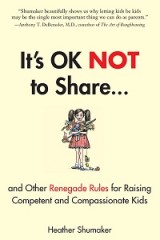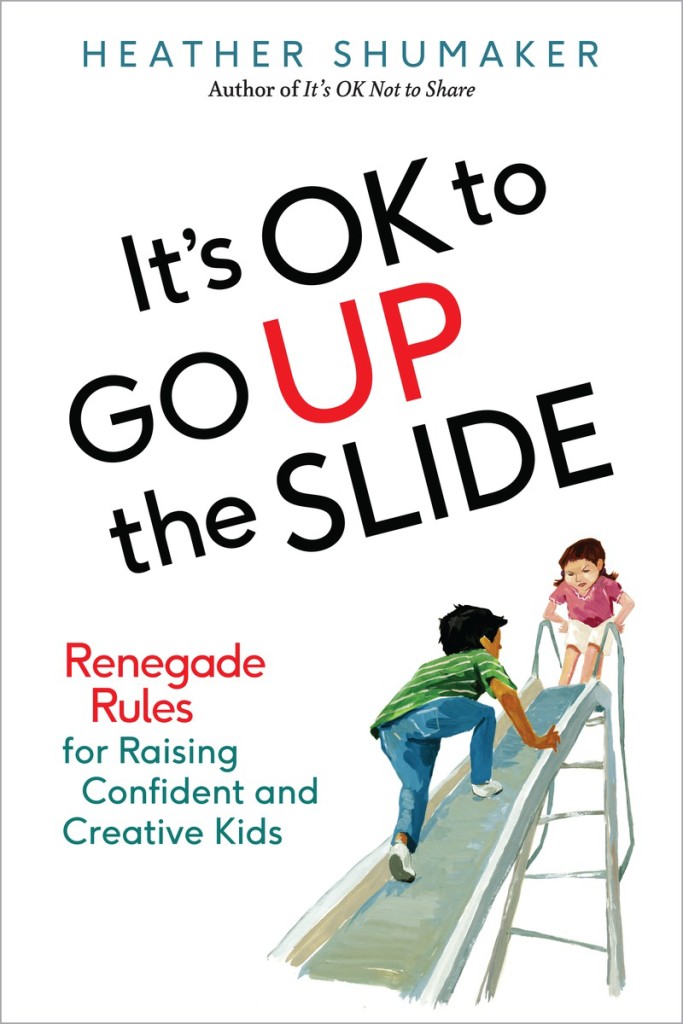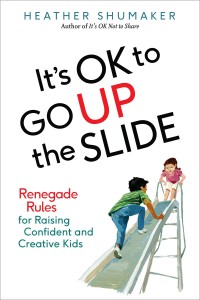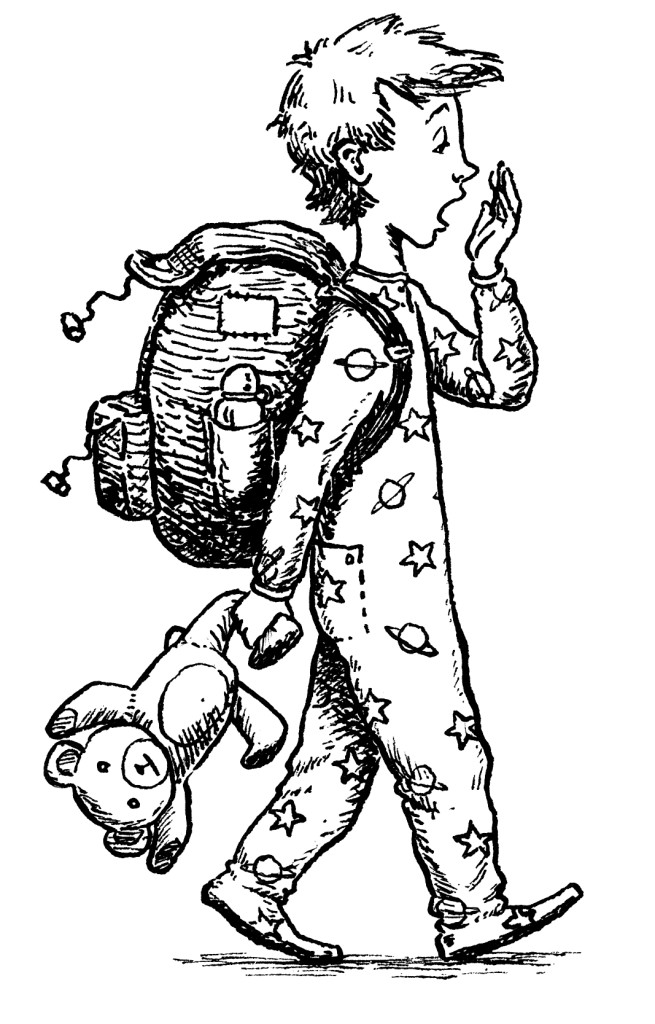A World of Books and Children
Search and enjoy 8 years of posts chock-filled with ideas from It’s OK Not to Share and beyond.
This morning I watched a mother hold her six-month-old baby. They were watching a screen together and the mother was singing along a counting song. "Twenty-two, twenty-three..."
There was nothing truly wrong with the scene except expectations. The baby was content. She was being cuddled and sung to, so her needs were mostly being met. But already there's a clash of expectations. What's valuable to the adult versus what's valuable to the child. What's possible and reasonable to expect at a child's given age versus what's pushing an adult agenda.
Drilling numbers early doesn't speed up a child's natural development. Counting to twenty-two is still years off. First comes the concept of "more" and then "she has more cookies than I do!"
Kids grasp early math concepts through life and play.
The same mismatch of expectations comes with ubiquitous calendars in preschool and kindergarten classrooms. Starting around age three, adults push the idea of Monday and November and 2015, despite the fact that most children's natural brain development is not ready to grasp these time concepts until closer to age seven.
We waste children's time when we use their time for "educational material" that ought to wait for later.
I understand the urge. Parents simply want their kids to have the best start possible. They truly dread the idea of falling behind, so they grab onto screen programs billed as educational. It's hard for adults to realize there are some things you just can't speed up.
Time is key. But not rushing time. Taking time.
What ways have you seen young kids use math concepts in their play? Are there babies counting to 22 in your town, too?
It's here! So excited, wanted to share with you this beautiful cover for my new book It's OK to Go Up the Slide. We still have to wait for the book - coming in spring - but thought you'd like to take a behind-the-scenes look at a book being born.
Besides the cover design, we're in the proofing stage for the final layout, and in the process of seeking blurbs from parenting experts. This is rather fun. I've been sending out sneak-peeks of the book to early childhood folks.
David Elkind wrote back, along with Alfie Kohn, Peter Gray, Ellen Galinsky, Michael Gurian, Ooey Gooey Lady, Stuart Brown and many others. Some have time to read it, some don't, but it's great to chat and connect ideas with other authors.
Here's a taste of what people are saying:
"I'm in love with the book from the introduction. It's going to rock some boats, challenge some thinking, and nudge some adults in the right direction." - Jeff A. Johnson, author of Let Them Play
"Can we clone Heather Shumaker? If so, let's get cracking! Anyone willing to stop and ask, 'Wait, why do we have to sign our kids' homework?' is on the right track. The fact that Heather Shumaker stops to re-examine almost all the conventional wisdom about childhood to figure out which of it is based on anything other than, 'That's just how it's done' makes her my hero." - Lenore Skenazy, founder of book, blog and movement Free-Range Kids
It's OK to Go Up the Slide is coming out March 8, 2016. You can pre-order it now, and be the first to carry it to your playground and share it with other parents as your child climbs up the slide. My eternal thanks to SYC's director, Stephanie Rottmayer, who thought up the great book title, and to all of you from San Jose to Sandusky who cheered it on.
This book covers a new range of hot-button topics facing preschoolers and elementary school children. Risk. Recess. Kindergarten. Princess play. Sad stories. Technology. Homework. It contains chapters like "It's OK to Talk to Strangers" and "Families are not Entertainment Centers." It's bound to shake up some thinking and validate what we know is right for children. For those of you who love It's OK Not to Share, I'm thrilled to bring you more renegade ideas.
Ready to be a renegade? Pre-order the "Slide" book.
Here's a few blurbs if you want to read more -
"This is the book I have been waiting for. Heather again has provided us with practical and respectful parenting advice for the child entering the big world of elementary school years...This book is tender and completely engaging. You will want to keep it with you at all times." - Dan Hodgins, author of Boys: Changing the Classroom, Not the Child
"Shumaker is like the wise elder we need beside us. In this day and age when recess and play have been set aside for worksheets and sitting still, we need to hear and heed her voice. Every parent, caregiver, teacher and administrator will want to return to this book over and over again. Bravo to Shumaker for encouraging us to reclaim our children's childhoods." - Sara Bennett, author of The Case Against Homework
Big thanks to everyone who has sent in ideas, kind words and support. This is your book, too.
What do you think? Do you like the cover? Are you ready to be a renegade?
The new school year probably brought excitement. Now it probably brings...homework.
If your children are in elementary school, homework has very little place in it. Research shows (analysis of more approx. 180 peer-reviewed studies) that homework assignments for this age is pointless, and even harmful.
What?! Really? Yes, those struggles with homework each night are not worth it. The research has been showing for years that elementary school homework shows 1) no academic benefit and 2) hurts children's love of school and learning.
That's why our family bans homework for our elementary-aged kids. You can read more about it here. (More coming March 8, 2016 - helpful tips on homework and discussion of homework research in my new book It's OK to Go Up the Slide, available for pre-order now.)
But is all homework bad? No, not necessarily. It's important to keep family - child - learning goals in mind. Take a look at your child and what she's asked to do. Decide if it's a net benefit or not.
When is elementary homework OK? When it's...
- Joyous
- Gets the child excited about school or learning
- Optional
- Something the child can do 100% herself, or mostly herself
- Pleasure reading
- A project that's occasional (1-4 times a year)
If homework in your house doesn't have these ingredients, take stock. Understand what's bothering you, then gather up your courage and talk to the teacher.
What do children need more than homework? They need these ingredients more: play, sleep and positive relationships with people who care for them.
 Have you found a sane solution to homework? Is homework a struggle in your family? If you've successfully talked to a teacher, share your experience with other families.
Have you found a sane solution to homework? Is homework a struggle in your family? If you've successfully talked to a teacher, share your experience with other families.
It's OK Not to Share...and Other Renegade Rules for Raising Competent and Compassionate Kids (2012)
It's OK to Go UP the Slide...Renegade Rules for Raising Confident and Creative Kids (pre-order for March 8, 2016)




